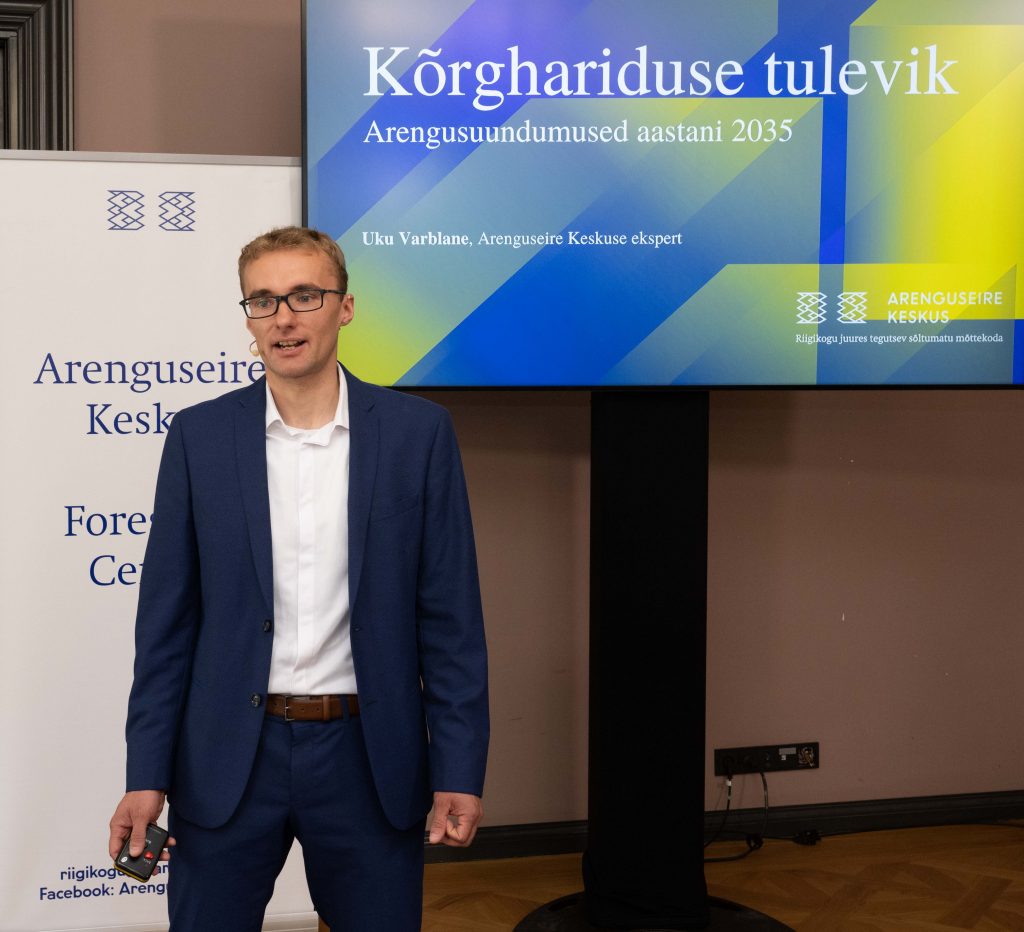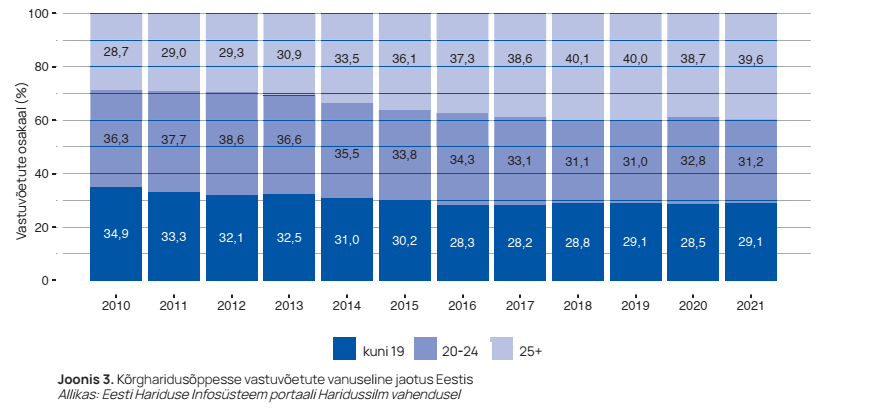Report: Higher education institutions will need to adapt faster to market demands
In order to remain competitive, higher education institutions will need to adapt faster to the needs of the education market, says the Foresight Centre Report “The Future of Higher Education. Development Trends until 2035”, published yesterday. In the next decade, the need for continuing education will increase significantly, which will require greater flexibility from higher education institutions and the state in regard to forms of study.

“The rapid technological development is changing the labour market and people’s skills are becoming outdated increasingly faster. At the same time, the average life expectancy and the number of years spent in active working life are growing,” Expert of the Foresight Centre Uku Varblane said. “If people study for longer before entering the labour market, the knowledge they will have acquired by the time they will graduate will be more outdated. Lifelong learning, which focuses on keeping knowledge and skills up to date, will become increasingly more important than diplomas and degrees.”
Over the last decade, the share of people over 25 enrolled in higher education has increased by more than 10% and is already accounting for nearly 40% of students. “The fact that the students’ profile has become more diversified and older is presenting several challenges to the higher education system. For example, higher education needs to take more account of students’ life style and preferences,” Varblane said. “If classical higher education institutions are unable to do that, students will find solutions outside universities or outside Estonia.”

According to Uku Varblane, the change in the student body over the next decade will lead to a significantly increasing need for flexible continuing education. “The question is to what extent the current higher education system will take part in this, and how quickly more flexible forms of study will be adopted,” he explained. “The role of higher education institutions in the growing continuing education market will also depend on the decisions of the state when intervening in the regulation of the sector. For example, whether higher education institutions will be given the exclusive right to award micro-qualifications.”
According to Varblane, the higher education system has three potential development paths:
- National lifelong learning, where higher education institutions are making efforts to keep pace with the changed career expectations and to provide flexible study opportunities, and the state is encouraging opportunities to operate in the continuing education market by creating regulatory advantages. Tuition fees and fee-based continuing education are bringing considerable extra revenue to the budgets of higher education institutions, and the higher education sector is growing.
- Elite higher education, where higher education institutions are slow in responding to changes in expectations and no regulatory advantages are created for them on the lifelong learning landscape. Higher education funding is based on scarce public funding, and higher education institutions are becoming more elitist and smaller.
- Virtual university, where studying is becoming digitalised both in content and in form, and the education landscape is consolidated into the hands of large digital education platforms. The Estonian higher education institutions will partially become subcontractors, providing subject courses to digital platforms. The public funding of higher education will remain at the current level, and only essential studies and studies that are more difficult to digitise will be ensured.
The section of the report concerning higher education funding highlights the need to review the Estonian student loan system, needs-based study allowances and tuition fees.
Read the report “The Future of Higher Education. Development Trends until 2035” (in Estonian).
In 2021/22, one of the study projects of the Foresight Centre is the future of higher education in Estonia, looking at the development trends and opportunities in higher education over the next 15 years.
The Foresight Centre is a think tank at the Chancellery of the Riigikogu that analyses long-term developments in society and economy. The Centre conducts research projects to analyse the long-term developments in the Estonian society, and to identify new trends and development directions.
Latest news
-
16.01 2026Study: The transition to Estonian-language-based education has led Russian families to use the help of private tutors
Hiring private tutors is widespread in Estonia. According to the study by the Foresight Centre, “The Use of Private Tutors in Estonia”, the need for private tutoring is greatest in Russian-speaking families, where private tutors are hired more than twice as often as in Estonian-speaking families.

 An independent think tank at the Riigikogu
An independent think tank at the Riigikogu